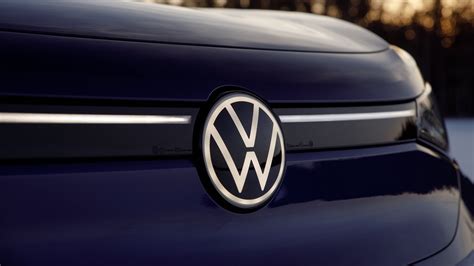Volkswagen is a German car brand that is known worldwide. It’s an iconic brand that has been around since 1937 and is still highly popular today. But how do Germans say Volkswagen? It’s actually quite simple – they say vay-double-vee.
The vay part of the pronunciation comes from the German phonetic alphabet, where the letter V is pronounced fay. So, when the two letters VW are put together, it’s pronounced vay-double-vee. This is the most common way of saying Volkswagen in German.
Of course, there are other ways of saying VW in German. Depending on the region, you might hear voo-veh
Exploring The German Slang For Volkswagen (VW)
Volkswagen has become a household name all around the world. VW has become synonymous with quality, performance and reliability. In Germany, however, Volkswagen is also known by its slang name, VW.
VW has been around in Germany since 1937, and it has become a part of the fabric of German culture. It’s a slang term used by Germans to refer to the brand, but also to refer to the cars themselves. VWs are known for their reliability and performance, and they are a staple of German culture.
In German, VW is actually an acronym for Volkswagenwerk, which translates to people’s car. It is a fitting name for the cars, as they are some of the most affordable and reliable cars on the market. They are also known for their iconic design and performance.
VWs are also known for their unique and interesting slang words. In German, the brand is referred to as käfer, which translates to beetle. This slang term is used to refer to the iconic Volkswagen Beetle, which was first produced in 1938. Other slang words for VWs include krokodil (crocodile) and schnecke (snail).
In addition to their slang names, VWs are also known for their unique and unmistakable sound. The engine of a VW produces a distinctive growling noise, which can be heard from quite a distance. It is a sound that will be familiar to any German, and it is a reminder of the brand’s long-standing history in the country.
VWs are incredibly popular in Germany, and they are often seen as a status symbol. They are also incredibly reliable, and many German drivers have had their VWs for years without any major problems. VWs are also economical, as they are known to be quite fuel-efficient.
If you’re looking for a reliable and affordable car, you can’t go wrong with a VW. With their unique slang names and unmistakable sound, they are a part of Germany’s automotive landscape, and they are sure to be around for many years to come.
Below is a table of the Volkswagen models and their slang names:
| Model | Slang Name |
|---|---|
| Beetle | Käfer |
| Golf | Krokodil |
| Passat | Schnecke |
The Fascinating History Of Volkswagen In Germany
The Volkswagen brand has a captivating history, as it’s one of the world’s most iconic automobile manufacturers. Volkswagen, which is German for “people’s car,” was first established in 1937 in Germany by the German Labour Front, a Nazi organization.
In 1938, the first Volkswagen Beetle was released to the public. It quickly rose to become one of the most popular cars in Germany, as it was affordable and fuel-efficient. The Beetle was so popular that it also became a symbol of the country, and the German people began to refer to it as the “Volks” (people’s) car.
In the years since, Volkswagen has continued to grow and expand its lineup. In the 1950s, it introduced the Type 2, which was a van-like vehicle, and in 1974, it introduced the Golf, which became one of the most popular cars in Europe. Today, Volkswagen’s lineup includes a wide range of vehicles, from the electric ID.3 SUV to the Polo hatchback, and they’re all still popular in Germany.
Though Volkswagen is a large, international company today, it’s still deeply rooted in German culture. In Germany, Volkswagen is commonly referred to as “VW”, which is an abbreviation for Volkswagen. The company also still produces some of its cars in Germany, including the Golf, the Passat, and the Polo.
To this day, Volkswagen remains one of the most successful and well-known car companies in the world, and its German roots are still evident in its cars. If you’re ever in Germany, you’ll likely see plenty of VWs on the roads, no matter where you go.
Below is a table of some of the most popular Volkswagen models in Germany:
| Model | Features | Price |
|---|---|---|
| Golf | 2.0L turbocharged engine, 6-speed manual transmission, all-wheel drive | €28,900 |
| Polo | 1.0L engine, 6-speed manual transmission, front-wheel drive | €14,200 |
| Tiguan | 2.0L turbocharged engine, 8-speed automatic transmission, all-wheel drive | €38,500 |
The German term for VW is Volkswagen.
Germans pronounce VW as fau-vay.
The acronym VW stands for Volkswagen.
Volkswagen translates to people’s car in English.
VW is written as Fau Vay in German.
Germans often refer to the VW brand as Volkswagenwerk or simply Volkswagen.
The Volkswagen logo symbolizes the letters VW which stands for Volkswagen.
The Volkswagen name originated from Germany in the 1930s.
The Volkswagen logo was designed by the German car manufacturer, Volkswagen, in 1938.
Most Volkswagen advertising is done in German.






